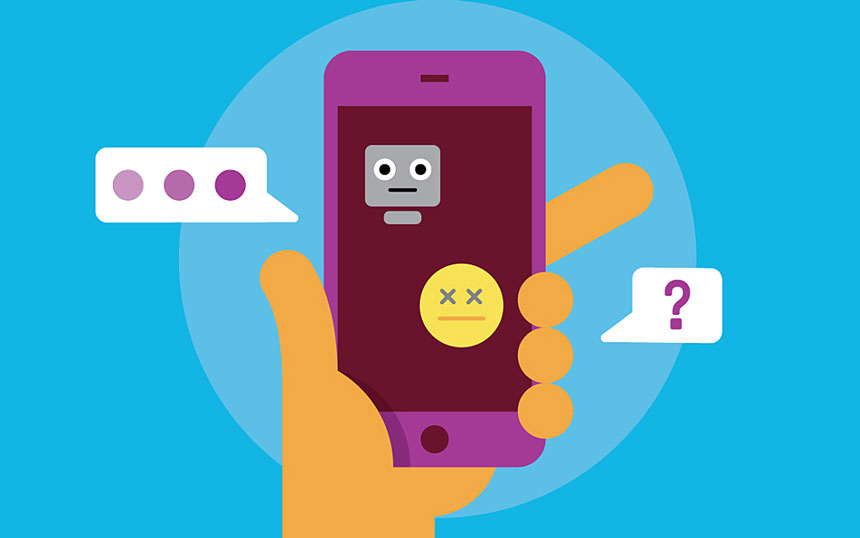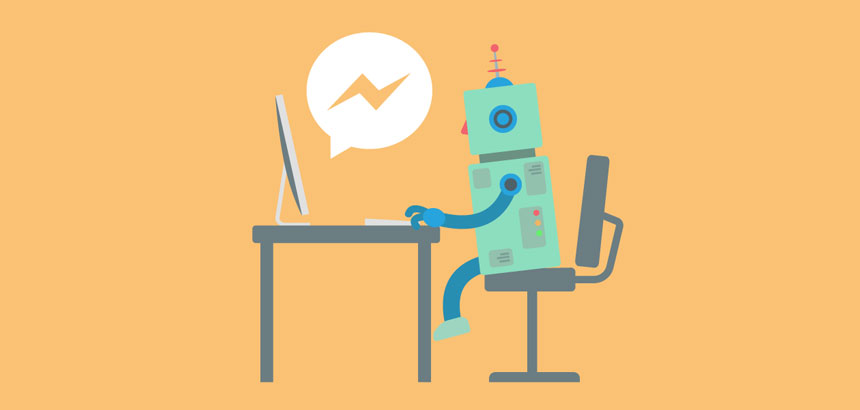Why chatbots will never be popular
Let’s be honest: most chatbots, if not all of them, aren’t real artificial intelligence
When reading about the digital trends, it is common to see chatbots in the list of technologies for the immediate future. But, from my point of view, they will never spread and their popularity will be fleeting.
Yeah, at this point I can imagine you shaking your head thinking this is an unnecessary rant. Nope, nothing further from the truth. Here’s why.
Technology in our day to day

The main cause of the quick expansion of technology is very simple: it makes our lives easier. How does it achieve that? It simplifies the way we do things.
For instance: why would you call a phone number in order to request a taxi when you can get one in just a few taps using a mobile application? Technology is changing our world and we are adapting technology for it to fit into our daily lives.
In addition, recent surveys have shown that people (especially millennials) prefer digital interaction rather than normal communication. We are ignoring our users. According to İlker Köksal, the CEO of BotAnalytics: “About 40 percent of [chatbot] users never get past the first text, and another 25 percent drop off after the second message”.
If we can all agree on this… why do we have to complicate interaction with users by introducing natural language?
Chatbot’s lexicon

Let’s be honest: most chatbots, if not all of them, aren’t real artificial intelligence. They are only a decision tree model (a database to keep things simple) that stores every “command” the user can text/pronounce. When it detects that one of the commands is used, the bot performs the corresponding action.
Furthermore, chatbots aren’t able to talk like a normal person because they are focused on a particular topic. Interaction will never feel natural if their language is limited to a single topic or even a clearly defined set of words. Facebook reported its Messenger bots fail in 70% of all user requests.

Chatbot interacting with a person who doesn’t know the “commands”.
“Sorry, I don’t understand what you just said” or other default responses should be avoided to provide a positive experience. Some bots usually solve this issue by limiting the way users can interact, eliminating the keyboard and providing default responses in the form of CTA buttons. But this solution only transforms the chatbot in a normal application with a slower interface (remember what we just said about chatbots complicating the interaction with users?).
In conclusion
It makes sense to bring technologies closer to people, but we shouldn’t be obsessed with it. If we use technology to perform certain actions it is indeed because eliminating the human factor makes everything easier for us as users.
“Are there any cases where a chatbot can provide real value?” you may ask. Of course, given their human approach they can, for instance, be helpful for emotional support. Also, using voice commands can make interaction possible when the user has its hands full or even if the user has a disability. Moreover, if AI grows and developers can build chatbots that fully understand what the user says, the experience using them will get a lot better. But for now (and I think it will remain so) they don’t deserve all the hype.
Thanks to UX Planet